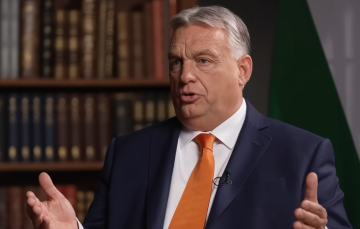Radical right forces in Europe are gaining momentum in Hungary, Spain, and Austria.
Hungary has long been recognized as a center for far-right views under Prime Minister Viktor Orbán, who actively promotes policies aimed at restricting immigration and preserving traditional values. However, the situation is changing not only in Hungary: such sentiments are becoming increasingly pronounced in other EU countries, particularly in Spain, where the Vox party is playing a more significant role. This party advocates for far-right ideas, particularly in combating illegal immigration, and also actively supports the restoration of unity with other European right-wing movements.

Recently, a coalition of far-right forces in the EU called "Patriots for Europe" was formed, comprising parties from 10 European countries, including Hungary's Fidesz, France's National Rally, and Spain's Vox. Members of this alliance are actively working to strengthen nationalism and oppose globalization and open border policies. Out of 720 members of the European Parliament, 86 belong to the "Patriots for Europe," making this political force the third largest in the European Parliament.
Additionally, the Austrian Freedom Party (FPÖ) won the elections in September 2024, becoming the first far-right party to win national elections in Austria since World War II. The FPÖ is known for its criticism of migrants, Islamization, and support for friendship with Russia. After coalition negotiations fell through, Chancellor Nehammer resigned, and the president granted Herbert Kickl, the leader of the FPÖ, the opportunity to form a new government.

Kickl, an ally of Viktor Orbán, has been sharply critical of Ukraine and the EU and advocates for the lifting of sanctions against Russia. If he succeeds in becoming Chancellor, it would exacerbate anti-Ukrainian sentiments within the European Council.